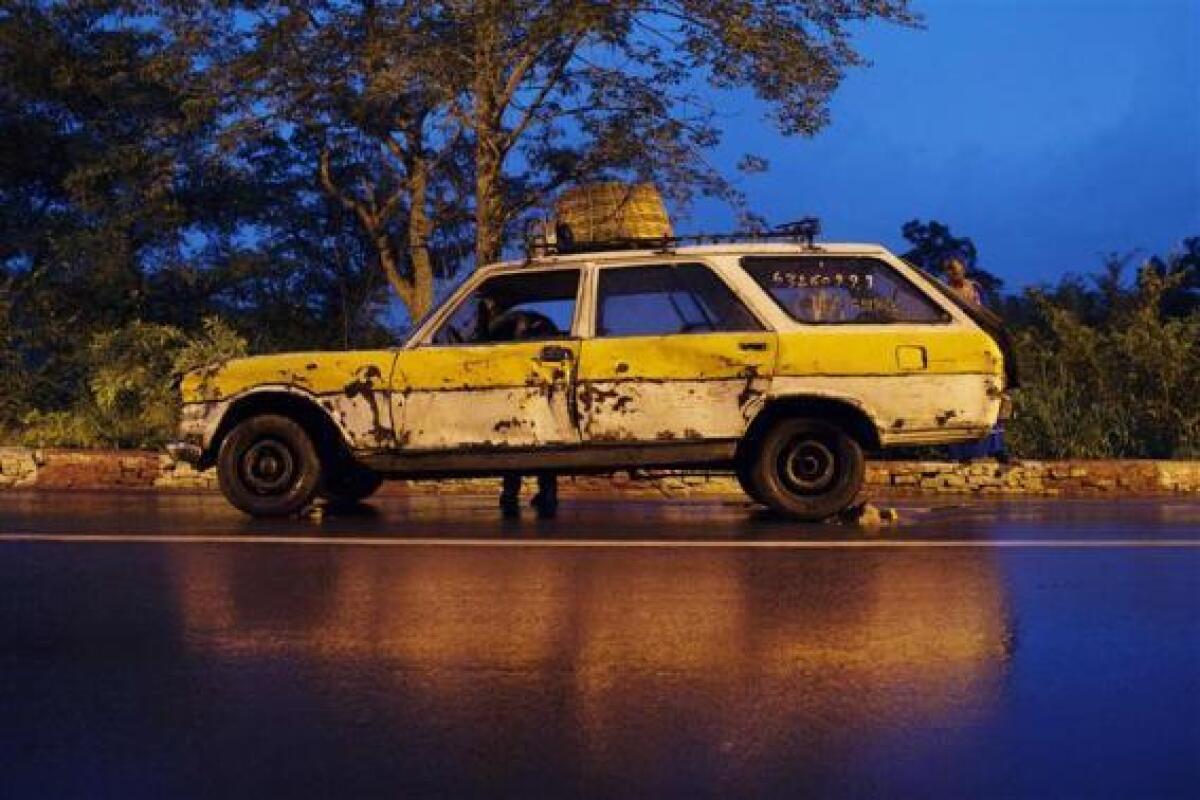Is the Peugeot 504 reaching its end as Africa’s workhorse?

- Share via
That’s the suggestion buried within this item from Reuters. The item reports that Peugeot closed its assembly plant in Nigeria some years ago, and that “Africa’s growing middle-class” has shifted out of Peugeot sedans and into Toyota Land Cruisers as status symbols.
If this is so, it’s proper to mark the end of an era. To old hands in East, South and West Africa, the Peugeot 504 was a familiar sight on highways, byways, dirt roads and mud flats. Our family acquired one shortly after arriving in Nairobi in 1988, and it served us for nearly five years, surviving indescribably potholed roads and one broadsiding by a couple of joyriders from Kenya President Moi’s personal motor escort.
The reason for its popularity is no mystery. Not because it was especially nimble or drivable -- quite the contrary, it was heavy and clunky. Rather, at some point, Peugeots had reached a critical mass in the African automobile fleet, so it was the easiest car to find spare parts for on the entire continent. There wasn’t a piece on the sedan that didn’t break, or break off, at one time or another, and no piece that couldn’t be replaced in a day or two.
RELATED: My adventure with camel meat
The Peugeot held up well compared to our other vehicle, an aged, mucus-green Range Rover that had served at least two previous Los Angeles Times Nairobi correspondents. The Rover sported a decal from the Stuntmens Assn. on its hood, which we didn’t know whether to interpret as a boast or a warning. In any case, the Range Rover was the king of the road -- when it was on the road, which wasn’t often.
The vehicle had some excellent features, including a differential lock to help it extract itself from muddy ruts and a motorized winch for when the diff lock wasn’t enough. But the point arrived when the likelihood of a breakdown made it untrustworthy for upcountry trips, to places you don’t want to get stuck in. For those we started renting a new Mitsubishi Pajero, an SUV that started arriving in East Africa in the late 1980s. It was top-heavy and prone to rollovers. But it soon became ubiquitous among expatriates and embassy staffers, so much so that when the Kenyan government introduced a 500-shilling note, a large denomination well beyond the reach of the average Kenyan citizen but just the thing for Europeans, the notes promptly got called by the nickname “Pajeros.”
The Peugeot 504 probably won’t disappear entirely from Africa’s roads any time soon. On the continent, as everywhere in the Third World, human labor is cheap and machinery expensive. African mechanics are among the best you’ve ever seen in keeping equipment running -- it’s a rare African airstrip that doesn’t host at least one working DC-3, an aircraft that hasn’t been manufactured since 1949. The Peugeot 504 has plenty of miles to go yet.




